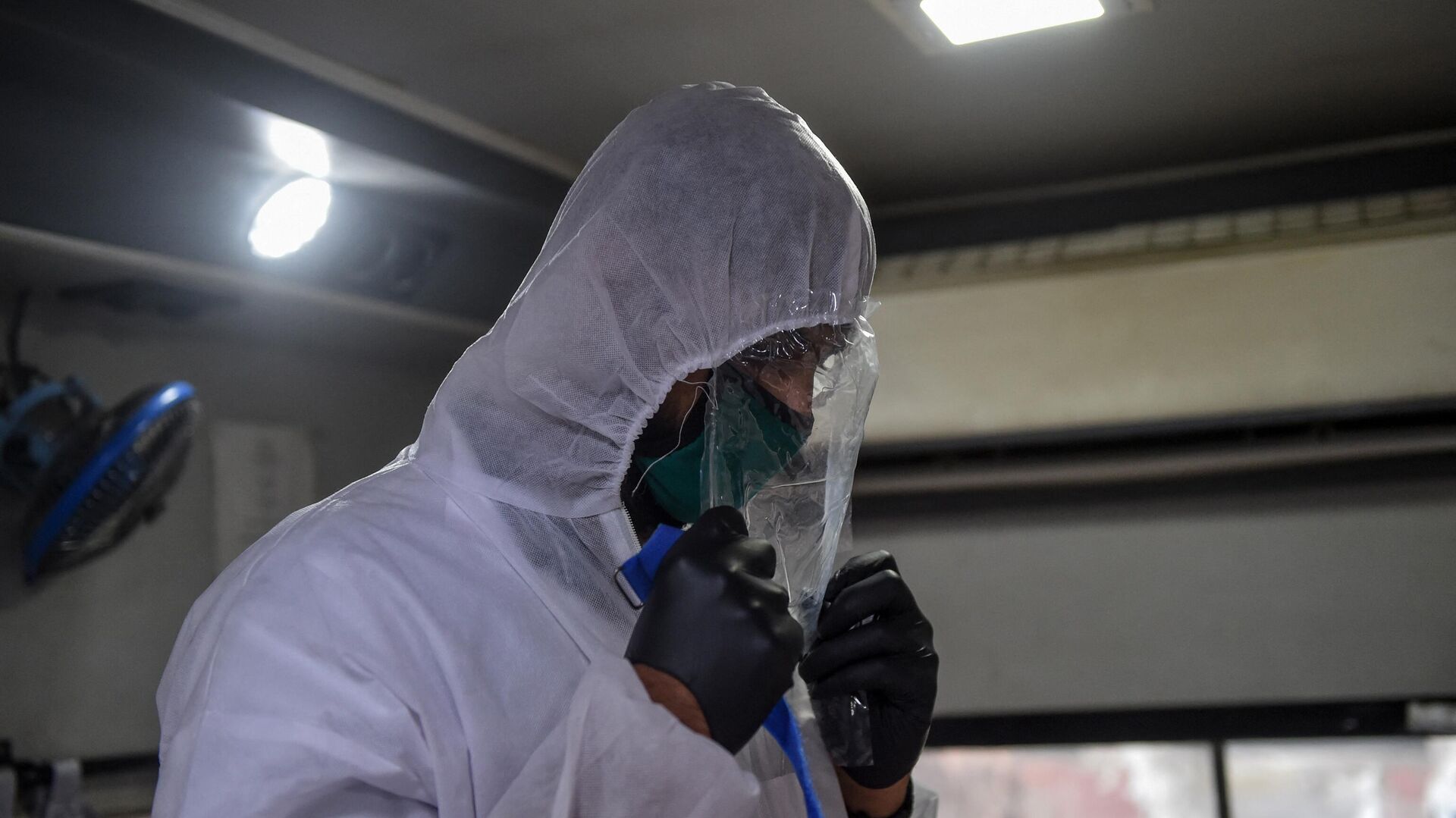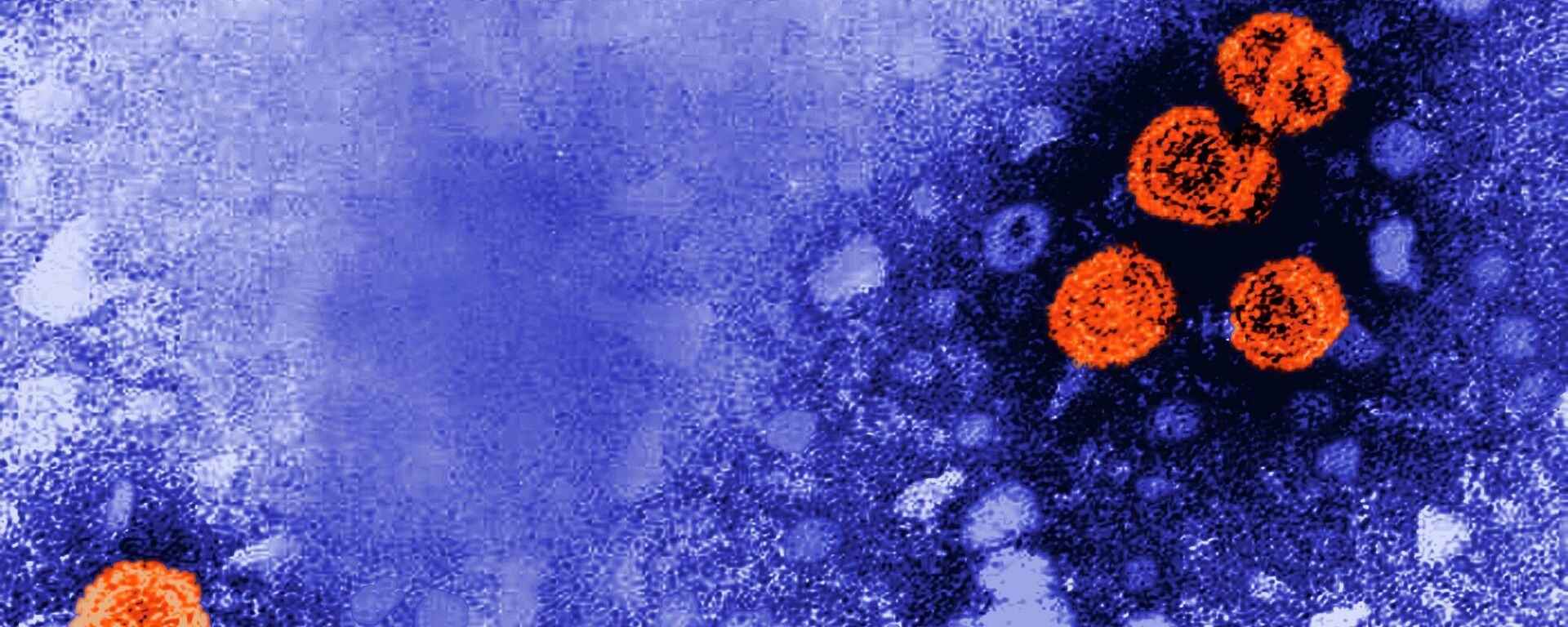https://sputniknews.in/20231202/walking-pneumonia-alert-indian-health-workers-brace-to-fight-outbreak-5659963.html
'Walking Pneumonia' Alert: Indian Health Workers Brace to Fight Outbreak
'Walking Pneumonia' Alert: Indian Health Workers Brace to Fight Outbreak
Sputnik India
Walking pneumonia is on the rise among children in China, leading to high alert in at least six Indian states - Rajasthan, Karnataka, Gujarat, Uttarakhand, Haryana and Tamil Nadu.
2023-12-02T13:40+0530
2023-12-02T13:40+0530
2023-12-02T13:41+0530
sputnik exclusives
india
health
china
rajasthan
health crisis
health issues
the world health organization (who)
healthcare system
vaccination
https://cdn1.img.sputniknews.in/img/07e7/0c/02/5675658_0:159:3077:1889_1920x0_80_0_0_f51503b940e1b9c92465e546ffb51ef5.jpg
Medical experts share that "walking pneumonia" is a colloquial term often used to describe a milder form of pneumonia.The Union Health Ministry of India has issued an advisory to hospitals and health workers in all states and union territories to review and strengthen public health and hospital preparedness to combat the respiratory disease 'walking pneumonia'.Although India has not been significantly affected by the 'walking pneumonia', Indian doctors are gearing up to fight the disease. Sputnik India spoke to them about the proactive measures they are taking to effectively combat the disease.What Is 'Walking Pneumonia'?Dr. Tushar Tayal, Consultant, Internal Medicine, CK Birla Hospital, Gurugram, emphasised that although walking pneumonia may appear mild, in certain cases it can lead to hospitalisation or even death, highlighting the importance of early detection and proper treatment.What Causes Walking Pneumonia?According to medical experts, walking pneumonia is mainly caused by a type of bacteria called Mycoplasma pneumoniae."This bacterium differs from other bacteria that cause pneumonia in that it lacks a cell wall, a protective layer that surrounds bacterial cells. This makes Mycoplasma pneumoniae more resistant to antibiotics than other bacteria," he added.SymptomsAccording to Dr. Sumat Mantri, senior consultant in pulmonology and sleep medicine at Apollo Hospitals in Bangalore, symptoms of the disease can include:How Is India Preparing to Fight Walking Pneumonia?Dr Sumat Mantri told Sputnik India that the medical community is closely monitoring the situation and is actively involved in public awareness campaigns.Some of the strategies being shared by medical experts at various hospitals include:Hospitals and medical professionals across the country have set up robust surveillance systems to monitor the incidence of walking pneumonia. They also monitor antibiotic resistance patterns to ensure the effectiveness of available treatments.Under the advisory, doctors and medical organisations were asked to assess health facilities, diagnostic capacity and surveillance systems for the early detection and rapid response to infectious diseases.Promoting and expanding vaccination efforts against common pneumonia-causing pathogens, such as Streptococcus pneumoniae and Haemophilus influenzae, remains a critical approach.Assessing the potential impact of vaccines already available, such as pneumococcal conjugate vaccine (PCV), is essential in preventing walking pneumonia.Doctors shared that public awareness campaigns to educate people about respiratory hygiene, recognising the symptoms of pneumonia and seeking timely medical attention are crucial for early detection and treatment.To combat antimicrobial resistance and promote responsible use of antibiotics, it is essential to establish and support antibiotic stewardship initiatives, Dr Gupta told Sputnik India.Emergency plans must be in place to respond effectively to outbreaks and pandemics, including protocols for isolation, treatment and communication.
https://sputniknews.in/20231126/indian-states-to-review-hospital-preparedness-amid-china-pneumonia-outbreak-5590234.html
india
china
rajasthan
Sputnik India
feedback.hindi@sputniknews.com
+74956456601
MIA „Rossiya Segodnya“
2023
Sangeeta Yadav
https://cdn1.img.sputniknews.in/img/07e6/0c/0f/110602_0:0:641:640_100x100_80_0_0_c298016a79eb02ef8caa9d1f688c12a5.jpg
Sangeeta Yadav
https://cdn1.img.sputniknews.in/img/07e6/0c/0f/110602_0:0:641:640_100x100_80_0_0_c298016a79eb02ef8caa9d1f688c12a5.jpg
News
en_IN
Sputnik India
feedback.hindi@sputniknews.com
+74956456601
MIA „Rossiya Segodnya“
Sputnik India
feedback.hindi@sputniknews.com
+74956456601
MIA „Rossiya Segodnya“
Sangeeta Yadav
https://cdn1.img.sputniknews.in/img/07e6/0c/0f/110602_0:0:641:640_100x100_80_0_0_c298016a79eb02ef8caa9d1f688c12a5.jpg
walking pneumonia, respiratory disease, children, china, high alert, union health ministry of india, advisory, hospitals, healthcare personnel, review, hospital preparedness, combat walking pneumonia, respiratory disease, measures, inflammation of lung tissue, fortis escorts hospital, ck birla hospital, what is causing walking pneumonia? what is walking pneumonia?, what are the symptoms of walking pneumonia, pulmonology, sleep medicine, vaccination, preventive measures, diagnose, treatment,
walking pneumonia, respiratory disease, children, china, high alert, union health ministry of india, advisory, hospitals, healthcare personnel, review, hospital preparedness, combat walking pneumonia, respiratory disease, measures, inflammation of lung tissue, fortis escorts hospital, ck birla hospital, what is causing walking pneumonia? what is walking pneumonia?, what are the symptoms of walking pneumonia, pulmonology, sleep medicine, vaccination, preventive measures, diagnose, treatment,
'Walking Pneumonia' Alert: Indian Health Workers Brace to Fight Outbreak
13:40 02.12.2023 (Updated: 13:41 02.12.2023) Walking pneumonia is on the rise among children in China, leading to high alert in at least six Indian states - Rajasthan, Karnataka, Gujarat, Uttarakhand, Haryana and Tamil Nadu.
Medical experts share that "walking pneumonia" is a colloquial term often used to describe a milder form of pneumonia.
The Union Health Ministry of India has issued an advisory to hospitals and health workers in all states and union territories to review and strengthen public health and hospital preparedness to combat the respiratory disease 'walking pneumonia'.
Although India has not been significantly affected by the 'walking pneumonia',
Indian doctors are gearing up to fight the disease. Sputnik India spoke to them about the proactive measures they are taking to effectively combat the disease.
What Is 'Walking Pneumonia'?
"Pneumonia is a general term for inflammation of the lung tissue. People with this type of pneumonia often do not seem as sick as people with more severe pneumonia. They may be able to continue their daily activities, including walking, despite having an infection in their lungs. This is why it is called walking pneumonia," Dr Ankur Gupta, Consultant, Internal Medicine, Fortis Escorts, Delhi, told Sputnik India.
Dr.
Tushar Tayal, Consultant, Internal Medicine, CK Birla Hospital, Gurugram, emphasised that although walking
pneumonia may appear mild, in certain cases it can lead to hospitalisation or even death, highlighting the importance of early detection and proper treatment.
"Pneumonia can be a serious illness, especially for young children, older adults and people with chronic health conditions," Dr Tayal told Sputnik India.
What Causes Walking Pneumonia?
According to medical experts, walking pneumonia is mainly caused by a type of bacteria called Mycoplasma pneumoniae.
"Mycoplasma pneumoniae is spread by respiratory droplets that can be released into the air when a person with walking pneumonia coughs or sneezes. The droplets can then be inhaled by another person, who can then become infected," said Dr Tayal.
"This bacterium differs from other bacteria that cause pneumonia in that it lacks a cell wall, a protective layer that surrounds bacterial cells. This makes Mycoplasma pneumoniae more resistant to antibiotics than other bacteria," he added.
According to Dr. Sumat Mantri, senior consultant in pulmonology and sleep medicine at Apollo Hospitals in Bangalore, symptoms of the disease can include:
and other manifestations.
"The key is to follow preventive measures such as getting the pneumonia/flu vaccine as advised, staying healthy by exercising regularly and eating a balanced diet. Get enough sleep, make sure you wash your hands frequently, avoid smoking and wear a mask in crowded places," Dr Mantri said.
How Is India Preparing to Fight Walking Pneumonia?
Dr Sumat Mantri told Sputnik India that the medical community is closely monitoring the situation and is actively involved in public awareness campaigns.
Some of the strategies being shared by medical experts at various hospitals include:
Surveillance and Monitoring: Hospitals and medical professionals across the country have set up robust surveillance systems to monitor the incidence of walking pneumonia. They also monitor antibiotic resistance patterns to ensure the effectiveness of available treatments.
Public Health Infrastructure: Under the advisory, doctors and medical organisations were asked to assess health facilities, diagnostic capacity and surveillance systems for the early detection and rapid response to infectious diseases.
Promoting and expanding vaccination efforts against common pneumonia-causing pathogens, such as Streptococcus pneumoniae and Haemophilus influenzae, remains a critical approach.
Assessing the potential impact of vaccines already available, such as pneumococcal conjugate vaccine (PCV), is essential in preventing walking pneumonia.
Health Education and Awareness: Doctors shared that public awareness campaigns to educate people about respiratory hygiene, recognising the symptoms of pneumonia and seeking timely medical attention are crucial for early detection and treatment.
Antibiotic Resistance Prevention: To combat antimicrobial resistance and promote responsible use of antibiotics, it is essential to establish and support antibiotic stewardship initiatives, Dr Gupta told Sputnik India.
Emergency plans must be in place to respond effectively to outbreaks and pandemics, including protocols for isolation, treatment and communication.



